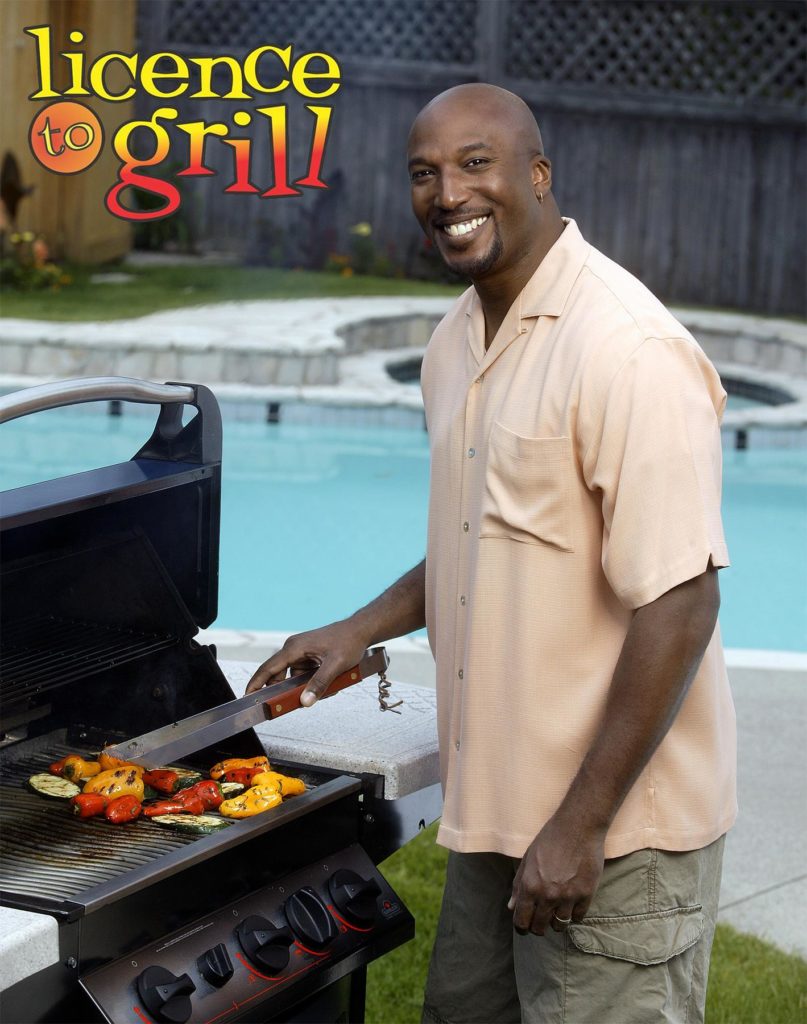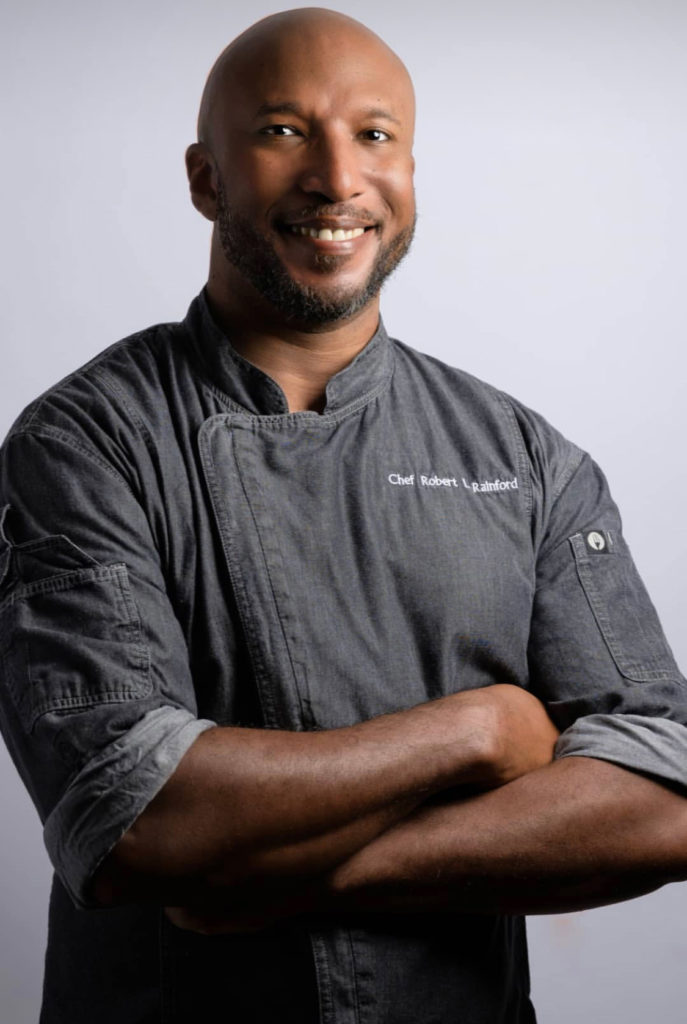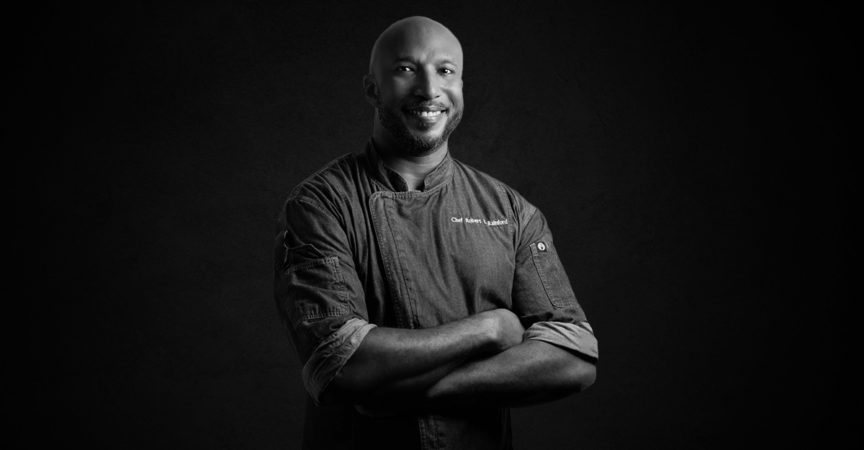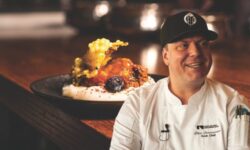All Eyes on the Prize – Rob Rainford
By Elle Asiedu, The Re-seasoning Coalition

You might know Chef Rob Rainford from the millennium Food Network hit License to Grill, but the hats he’s worn in the kitchen go far beyond grill master supreme. Having immigrated from Jamaica with his family at a young age, Rainford’s aspirations to be a chef were abundantly clear.
So clear, in fact, that they didn’t exist.
“The requisite was to come to Canada, get a degree, and go to work,” he says, recalling his father’s model for success at the time. He traded his dream for traditional subjects and basketball, although a food program at his Toronto, ON high school, Central Technical School, reminded him of the passion for food still burning within.
At age 26, Chef Rainford finally enrolled in George Brown College’s culinary program. “I knew that if I wanted to get ahead, especially as a person of colour, I had to have that diploma,” he says.
GETTING TO WORK
Following his culinary school graduation, he worked at a series of high-profile Toronto restaurants, with his eyes set on being an Executive Chef. “My quest was to be the best. Nobody was going to outwork me,” he remembers.
Despite several big breaks and mentorship from chefs like Ned Bell, Rainford’s race was often the stumbling block that prevented him from reaching the goal he had been working towards for over a decade.
That invisible, and sometimes, visible barrier to reaching the top shows up in the careers of the majority of Black restaurant chefs in Canada. It’s one that can strengthen your resolve or push you out of traditional establishments altogether.
He remembers working at Accolade as the second-in-command when the Executive Chef left. There assumption in the kitchen was that Rainford would be next in line, but instead the restaurant hired another white chef. “I believe that if I was a white guy, I would’ve gotten the job – it would’ve been enough,” he says.
A similar situation transpired at another elite establishment where Rainford managed the kitchen for six months while the executive team looked for a new brigade leader. He was ready for the role – the problem was that management wasn’t.
“I heard indirectly that the owner said ‘I can’t have a Black face be the Executive Chef at my spot’,” he recounts. “And it burns your gizzards because you know that it’s a race thing and if you speak up about it, you’ll be black-balled.”
PUSHING THROUGH
In a career full of highlights, Rainford believes that keeping his head down, working hard, and “playing the game” left him in a better position, but he knows that his story isn’t common and that the old boys’ club needs to change.
“The industry can only change if more of the decision-makers are Black, more entrepreneurs need to be hiring Black chefs to change the business itself,” he reflects. “How many Black executive chefs can you count in Toronto right now?”
Today, Chef Rainford is looking inward. After working in European and North American-style kitchens for 20 years and eventually becoming an Executive Chef, he’s looking forward to joining a restaurant with roots connected to his own background.
His advice to young Black chefs just starting out? “Learn how to cook, learn the basics, and never let yourself be dissuaded from pursuing your goals because someone said ‘No.’”

The Re-Seasoning Coalition is dedicated to increasing the representation of Black Canadians in foodservice through research, programming, and sharing real stories like Rob’s. Stay tuned for more profiles on menumag.ca.









